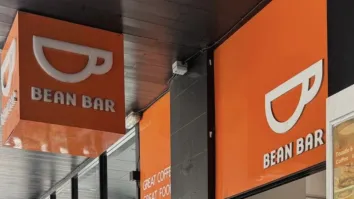
Are Deal of the Day websites the future of QSR Retailing?
We ask industry analyst, Bettina Kurnik from Euromonitor, here is what she has to say.
QSR Media: Will we be seeing more QSR's doing more of this in the future?
Bettina: Certainly more QSRs will be incorporating the daily deals/group buying model in the future as a means to engage with existing and potential customers in the new media of their choice. As we’ve seem across many FMCG markets, digital engagement is a key issue at the moment. It’s all about facilitating a dialogue with consumers through social media, appealing to the “buy it now” mentality of daily deals and encouraging on-the-go consumption through the adoption of m-commerce. While there is speculation that their popularity may be starting to wane, daily deals websites are likely to remain a permanent fixture on the marketing landscape.
For QSRs, in particular, the potential for generating traffic growth through daily deals websites is particularly attractive. Getting people through the door is a huge issue for any QSR chain these days, however the question needs to be asked if the particular QSR can cope with the amount of traffic. The $2 Hungry Jack’s Whopper deal managed to crash the group buying site Scoopon, yet what will this mean for actual footfall? While Hungry Jack’s has an extensive nationwide network and the ability to redeem these vouchers, smaller QSR chains could be left reeling.
QSR Media: What are the upsides collaborating with these sites?
Bettina: The benefits of such collaborations include visibility for smaller players, and group buying deals could prove effective in promoting limited-time offers or rolling out new products. Such deals should be viewed more in terms of marketing or advertising spend than straight-up revenue generation however. While there is an element of daily deals as a loss leader, with upsell driven through higher margin products like beverages or desserts, group buying is about building visibility and driving traffic – with any net profit a possibility rather than a given.
QSR Media: What are the downsides of collaborating with these sites?
Bettina: To minimise any negative repercussions, preparation is crucial: either through capping the number of vouchers available or by limiting the timeframe for redemption to non-peak periods. Above all, the experience for the customer must be positive. If the deal generates so much traffic that service is slowed or it results in the availability of an inferior product, then there could be significant long-term negative effects.
As we’ve seen demonstrated in the United States, there are countless stories of operators who ran a deal and were completely unprepared for the crush of customers it generated, which led to bad service, out-of-stock products, and angry customers, many of whom are more than happy to go on Yelp or a similar review site and tell the world about the horrible experience they had. The fact that many of these angry customers are new customers is worse still, as it means the whole point of running the deal has essentially been squandered.























